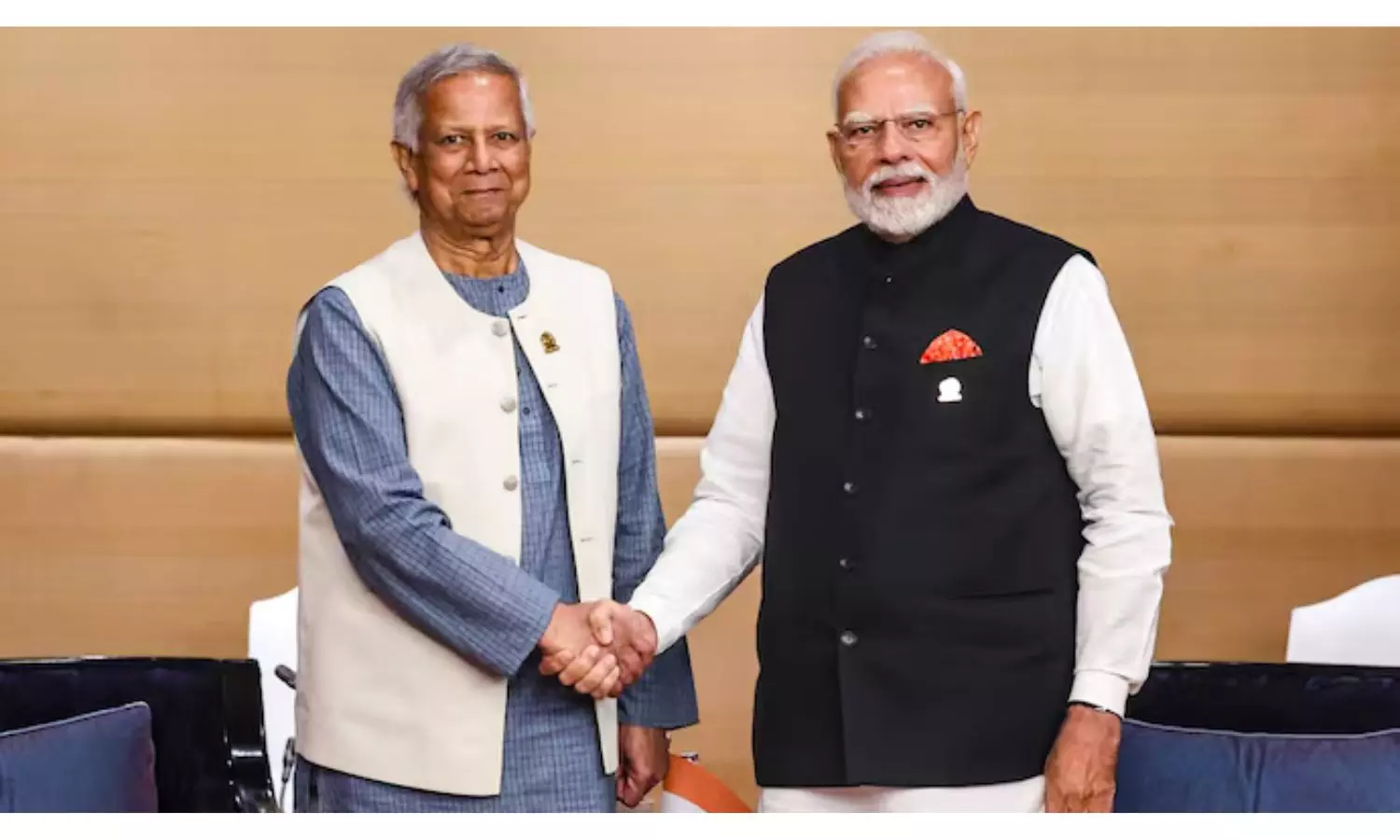AA Edit | Modi’s hard talk with Yunus on minorities, China needed
Mr Modi’s comment about the need to avoid rhetoric that could vitiate the environment, was a definitive reference to Mr Yunus’ reference to the landlocked Chicken’s Neck region that is the umbilical cord to the northeast

It was a stern Narendra Modi that Bangladesh ran into at the Bimstec summit. This was bound to be as the country that targeted the minorities at a time of turmoil is also being pushed into the orbit of China’s geopolitical influence. While that may have been an expected outcome after India stepped in to give the fleeing Sheikh Hasina asylum, the steep dive that has come about in the neighbouring country under the interim rule of chief adviser Muhammad Yunus is a cause for worry in the subcontinent.
In telling Mr Yunus off regarding the treatment that the minorities received when student protests snowballed into a movement which was helped along by external forces eager to thrust a regime change in Bangladesh, Mr Modi was only speaking the stark truth. Also, the interim head of government may have been overstepping his brief in dealing with foreign affairs in a major way on his visit to Beijing to meet Chinese president Xi Jinping.
Realistically, India has a problem on its eastern front too now and it recognises that even as Mr Yunus is leading his nation into further disorder with the garment industry that was propping up the economy floundering and law and order yet to stabilise enough to allow normal functioning of business and industry. It was in Bangladesh’s interest to be reminded about where it is headed. Given the debt trap experience of countries in the China orbit, Mr Yunus may not be doing his country a favour by steering it firmly into China’s sphere of influence.
Mr Modi’s comment about the need to avoid rhetoric that could vitiate the environment, was a definitive reference to Mr Yunus’ reference to the landlocked Chicken’s Neck region that is the umbilical cord to the northeast. For a person accused at home of favouring cronies from his old days as microfinance banker and who is holding a strictly temporary position as virtual head of government, it was imprudent to air his views on strategic matters that are strictly India’s business.
True, Bangladesh has issues with India regarding the extradition it seeks of Sheikh Hasina, her statements on social media that the regime there considered unwelcome, deaths of Bangladeshis at the India border and the pending Teesta water sharing agreement. But such issues can be addressed only when a legitimate Bangladesh government is in place after elections are held.
Regardless of how polls to let the people choose a democratic government may pan out, India must keep seeking a way to restore ties while addressing the trust deficit that has built up since the events that took place leading to Sheikh Hasina’s ouster. India was not being gracious, just diplomatic, in entertaining the Bangladesh request to hold a bilateral meeting with an interim head. It stands to reason that to keep talking is to keep avenues open.
Mr Yunus may have been attempting to get something out of the meeting he sought with Prime Minister Modi, including asking that Sheikh Hasina refrain from making statements seen to disrupt harmony in her country. But the fact that Mr Yunus acknowledged India’s role in freeing them from Pakistan’s cruel regime may have emphasised that the point of no return has not been reached in India-Bangladesh ties.
